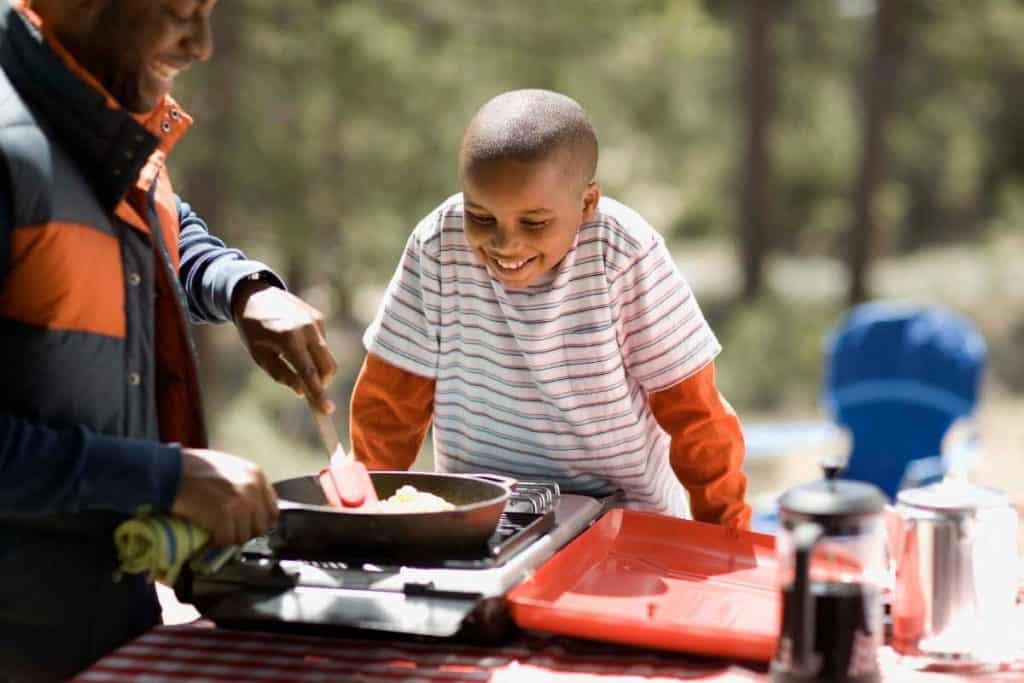One of the many concerns when gone camping is the spoilage of food in the outdoors. Whether you’re off for a few hours to a couple of days, food safety when camping is important. Keep these food preparation and storage tips in mind when you’re on an adventure.
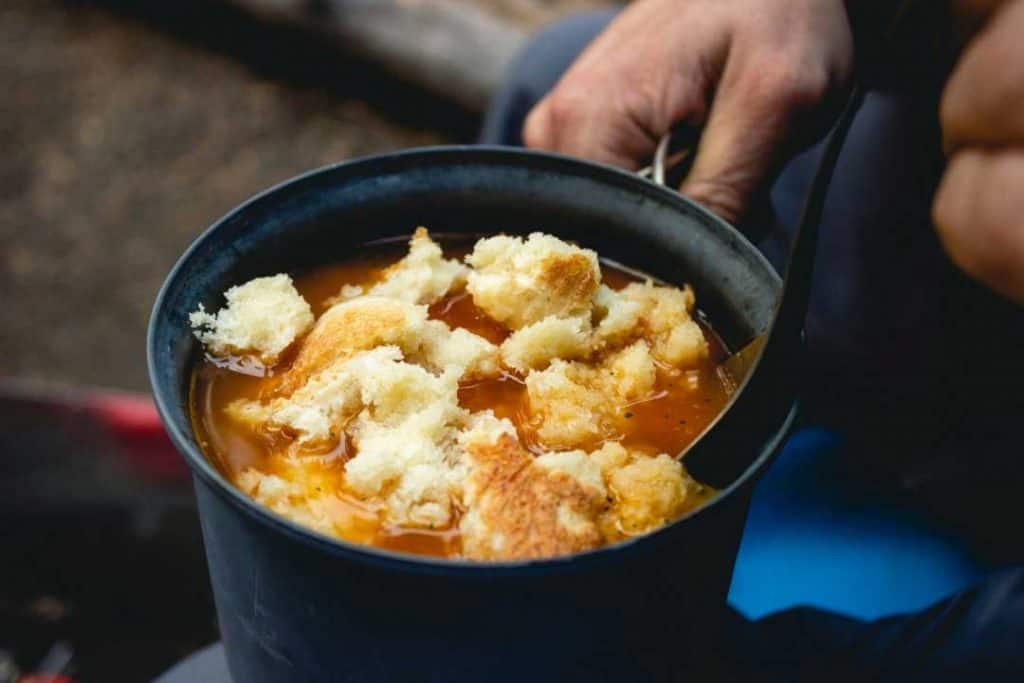
Storage tips and food safety when camping outdoors
Food always tastes good when prepared outdoors. There’s something about that freshness you can’t get when you’re cooking in the kitchen. However, the biggest threat there is the risk of spoilage.
Here’s how you can prevent food spoilage from happening.
Plan your meals accordingly
Planning your dishes on camp is as important as packing your gears on the car. First, ask yourself these questions:
- Where will you go?
- Will you camp in the tropics or outback?
- Is it hot and humid this season?
- Is it winter and chilly where you’ll camp?
- Do you think the camp is full of creepy crawlies or animal population?
You can always try to limit perishables by packing non-perishables ones like:
- Canned tuna
- Canned beef
- Pasta or oatmeal
- Ready-to-eat meals to add with warm water
- Nuts and crackers
- Beef jerky
- Peanut butter
- Powdered milk and fruit drinks
- Juice boxes
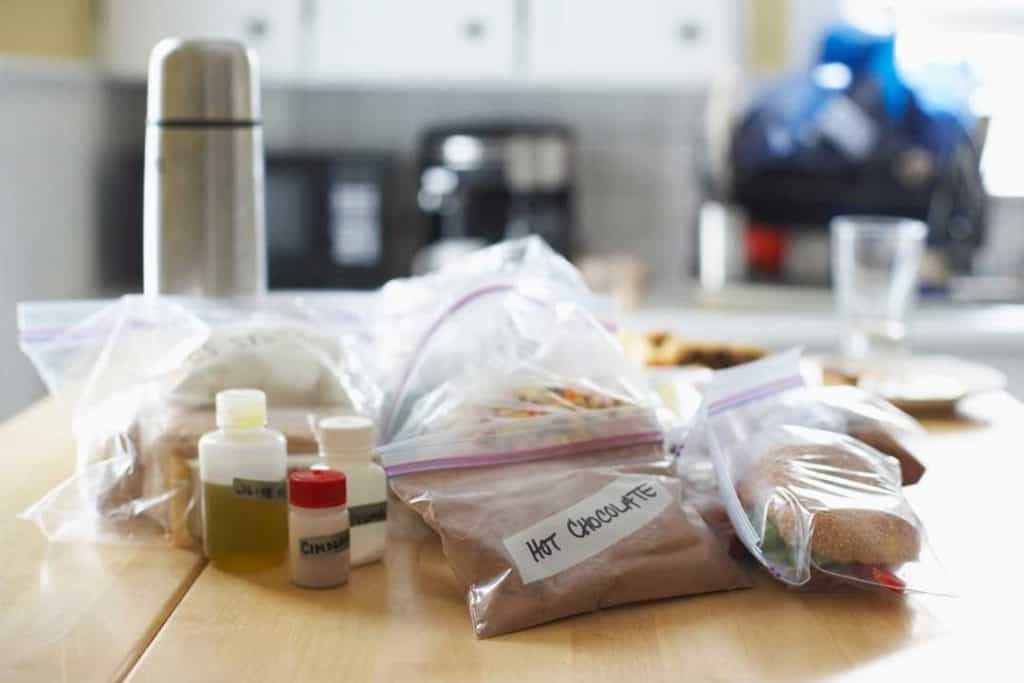
Store food in a quality cooler
When storing food in a cooler, make sure to separate meals, drinks, and snacks for each other. Keep food in containers to avoid spoilage and replenish the ice as soon as you can. Bear in mind these tips for storing food:
- Don’t store food with your drinks
- Keep food wrapped or in containers
- Prepare meals ahead of time and keep them frozen
- Never leave your cooler or food container out and covered – animals can still come and steal it
Keep your hands clean
You’ll be surprised how important this food safety tip is. When preparing food, you can prevent cross-contamination of bacteria from seafood, chicken, eggs, or meat. Make sure to wash your hands at least 20 seconds. Why not bring cooking utensils like serving spoon or tongs?
Keep food according to their desired temperatures
Campers have a saying, “Keep hot food, hot. Keep cold foods, cold.” Frozen foods shall be kept insulated in a cooler or in a refrigerator to avoid spoilage. Keep these items in the shade and avoid having them in direct sunlight. Meanwhile, you should keep food hot and well-cooked to avoid bacteria, e.coli from forming. Meat should be cooked in 145 -160°F.
- If you’ve gone hiking, it’s best to bring non-perishable foods
- If you have good leftovers, heat it up until 165°F
- Bacteria thrives in temperatures 40-140°F
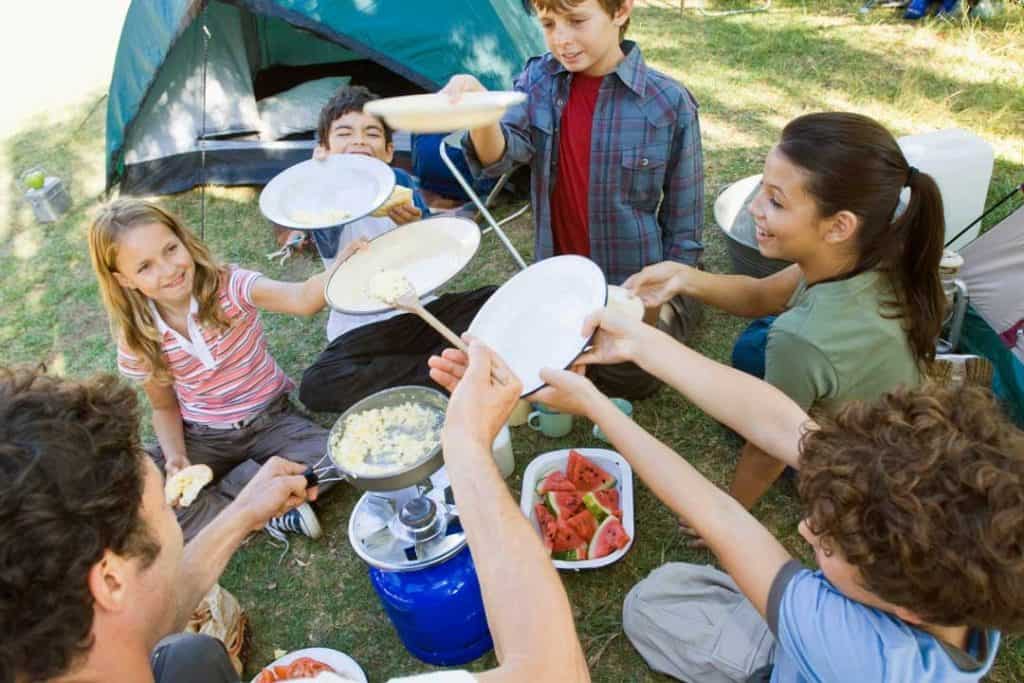
Clean up after preparing, cooking, and eating
Food safety when camping isn’t complete unless you pack up what you’ve prepared. Always clean up your campsite to avoid cross-contamination with leftovers. More so, the smell would rile up nearby animals to rampage your site for food. Also, it’s common camp etiquette to keep your area clean and organized.
- Wash dishes at the camp kitchen
- Don’t was over the water’s edge
- Bring garbage bags
- Carry with you your leftover food, unless there’s a better disposal system at the camp. Also, some camps allow burning of food in the fire pits. Make sure to ask the management before doing so.
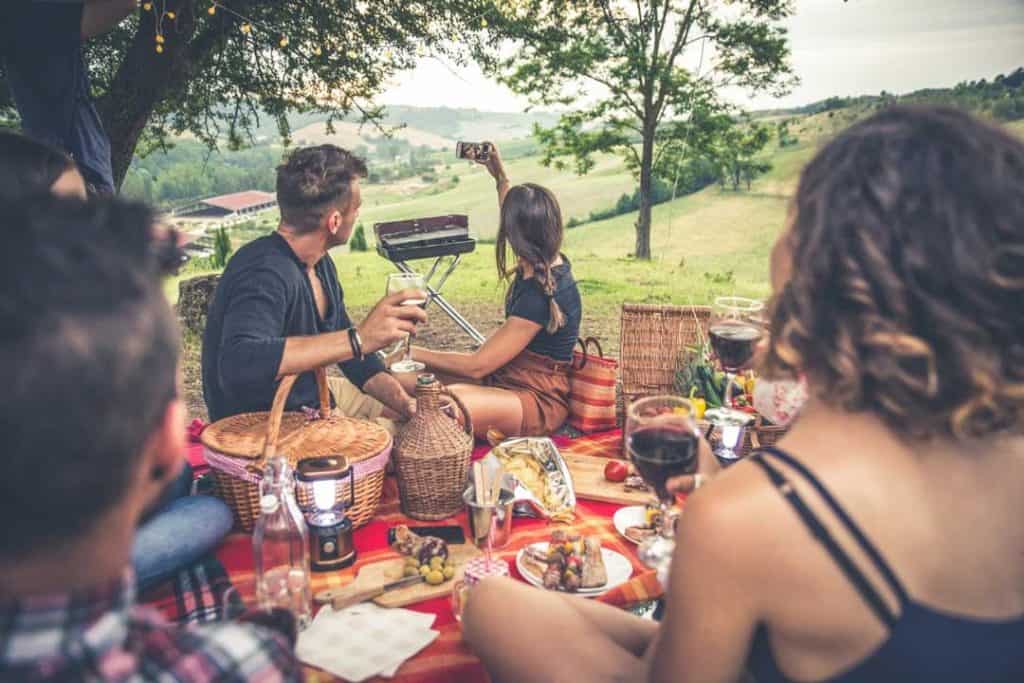
New to the outdoors? Remember, food safety when camping
Campers love to eat! But if you’re new to camping, preparing meals for your whole trip can be daunting. Here’s a bit of inside advice for you.
Pack non-perishables. If you’re bush-camping for more than a day, meal preparation can be a lot trickier. Pack safe, shelf-stable items to last the trip.
Bring safe drinking water yourself. It’s never a good idea to take some water from the lake. Pathogens and bacteria can still linger in these waterscapes. What’s more, you don’t want to ruin nature with cross-contamination, do you? Bring safe drinking water to be used for cleaning your food and utensils.
Test run with one-day camping. If you’re new to camping, keep your days and numbers low. Start with one-day camping, and see how far are you with handling and cooking food. Afterward, you can see whether you can take on two-day meals or more.
Try restaurant or camp food. Don’t worry if you don’t know how to prepare food in the outdoors. Most campgrounds have restaurants or cafes families and campers can enjoy.
Improper food safety and storage habits can pose a serious health problem. If you want to bring along cheese, vegetables, or seafood, you might want to take precautions when handling them at camp.
The constant worry of food spoilage or animal raids might be at the back of your mind, but as long as you plan your meals accordingly, you can secure these foods from wildlife and bacteria.

